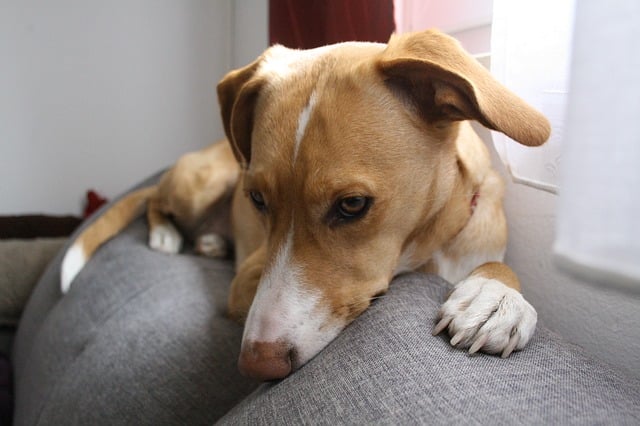Pets add so much to our lives, but they certainly don’t make keeping the house clean easy. Muddy paws, shedding hair and the occasional bathroom accident make extra cleaning unavoidable. Fortunately, these tips can help you reduce the amount of cleaning you need to do, whether your pet is a tiny hamster or a Great Dane.
Get Rid of Loose Hair
Do you hesitate to sit on the couch before you go to work because you’re afraid you’ll be covered in pet hair? Keeping pet hair under control is a big challenge in many homes. Taking a few steps to contain the hair is the key to pet hair management.
Towels or sheets placed over your pet’s favorite resting place or on your bed (if your pet likes to sleep with you) can help corral the hair. When the towel or sheet becomes too hairy, take it outside and give it a good shake.
Brushing cats and dogs daily will help reduce shedding throughout the day. Set aside 10 or 15 minutes every day for brushing. Brush your pet on a tile or wood floor to make clean up easy.
Vacuum or dry mop every day to get rid of pet hair in carpets or on hardwood or tile floors. Electrostatic mops are an excellent choice for hardwood and tile floors because hairs adhere easily to them.
Keep it Clean
Wipe up dirt and pet accidents as soon as they happen, if possible. Once a pet urinates or defecates in a particular place, it may return to the same spot again and again if you don’t remove lingering odors. As soon as you clean the spot, apply an enzymatic pet cleaner to get rid of underlying smells that attract pets.
Door mats strategically placed on your porch and inside your home can reduce the amount of dirt your pet tracks inside your house. Before your pet runs through the house after a walk, spend a few minutes cleaning off its feet with a moistened paper towel.
Eliminate Odors with Regular Baths
You’ve probably walked into a friend or relative’s house and known immediately that a pet lived there. Odors aren’t uncommon when you have dogs, cats, birds or small animals. Luckily, it’s easy to eliminate common pet odors.
Some dogs don’t mind hopping in the shower with their owners, but others do anything they can to avoid bath time. Weekly baths are the best way to reduce that doggy smell in your home, although your pet may be a less-than-willing participant. Although your pet may never like baths, you can do a few things to make the process more pleasant, such as:
Place a cotton ball in each ear to prevent water from entering the ear canal.
Fill the tub with three inches of water. Deeper isn’t better when it comes to bathing dogs. The more water in the tub, the bigger mess you’ll have to clean up.
Use shampoo specially formulated for pets, not people. Although everyone in your family may like your jasmine-scented shampoo, it might irritate your dog’s skin.
Don’t use a sprayer or dump a container of water over your pet’s face. Although using a sprayer is a good way to wet and rinse the rest of your pet’s body, your pet won’t like being sprayed in the face. Instead, wet a washcloth and clean your pet’s face and head with it.
Offer treats. If bath time is a traumatic experience for your furry friend, be sure to offer a treat when you’re drying off your dog.
Practice Good Litter Management
The manufacturers of cat litter may claim that their litter will help reduce odors, but every cat owners know that there’s only so much the product can do. Ammonia in cat urine causes a particularly unpleasant odor, even if you use clumping or low-odor products.
Scooping the litter at least twice a day can help reduce the odor, as can using a hooded litter box, if your cat will tolerate it. Although scooping litter eliminates the need to change the litter every day, you will eventually need to replace it. When you do, clean the box with a solution of water and mild detergent. Don’t use products with strong fragrances, as your cat may refuse to use the box if the smell changes.
Cat litter can scatter far from the litter box. Solve the problem by placing a large bath mat or carpet remnant under each box. At the end of the day, take the mat or remnant outside and shake it to remove stray litter.
Clean Cages Often
Birds, hamsters, guinea pigs and gerbils may be small, but their cages can produce an overpowering aroma if they’re not cleaned regularly. Cleaning cages and replacing bedding at least once a week will make you and your pet happy. If you have a particularly stinky pet, you’ll want to clean the cage more often.
Are you looking for a home with a backyard for your pet? Country Classics offers new construction homes in the Central New Jersey area, the perfect location to live with your furry friends. Contact us today to learn more about our current availability.
Martha Stewart: Clean House Tips for Pet Owners
http://www.marthastewart.com/894553/clean-house-tips-pet-owners#869262
Dogtime: Get Pet Hair Off and Out of Your Home
http://dogtime.com/how-to/home-cleaning/3487-get-pet-hair-off-and-out-of-your-home
















Leave a Comment